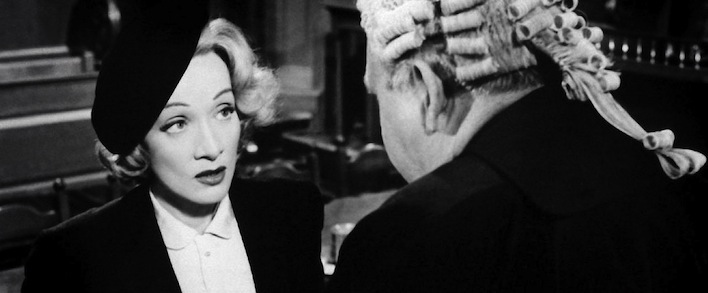The Creative Subject and the Law of Reality (Self-censorship in the Work)
Abstract
If an unbreakable law exists for the Subject, it is the limits that Reality sets for his expansion and for his creativity, unless he alienates himself from reality to enter the realm of folly. Literary creation realizes itself in the space between the direct experience of the world, the event in its pure happening, and the unity of sense as an object of desire. The subject with his understanding abilities, therefore, must react to the stimulus given by the event willingly or unwillingly experienced and he must venture out to the eventful journey of interpretation led by the intentionality of his desire. As Petrarch’s canzone 360 demonstrates, the trial-pattern can be used as a literary form and a cognitive model in order to show the inner reasoning and moral debate, to define the rules of the specific literary genre, to explicate a truth that finally depends on the literary genre. On this journey the desire of sense can suffer limits and frustrations imposed by the law of Reality: obstacles, obligations, censorship and self-censorship (as introjected censorship principles). This law both makes hard and leads the journey, obstructs it but also makes it shareable: facing a Reality similar for all the human beings (even if differently perceived), shareable reactions and interpretations are developed.
My article intends to explore these issues in some revealing and foundational texts of modern lyric poetry (mostly from Petrarch’s Canzoniere), having in mind the idea that poetry, as a personal voice of a subject, utters this journey of research more than it reveals some acquired general truths. In European lyric tradition, woman and nature can be considered as functional objects that activate and set a limit to the subject; they embody the law to obey, to which to conform or to rebel. In order to exercise himself in the text-space, to construct himself as a subject, the lyric-I has to create the limits within which to act and the laws of this space.
Downloads
References
Antonelli, Roberto, “La morte di Beatrice e la struttura della storia”, Beatrice nell’opera di Dante e nella memoria europea 1290-1990, Atti del Convegno Internazionale 10-14 dicembre 1990, Ed. M. Picchio Simonelli, Firenze, Edizioni Cadmo 1993: 35-56.
Baudelaire, Charles, Opere, Eds. G. Raboni e G. Montesano, intr. di G. Macchia, Milano, Mondadori, 1996.
Boezio, La consolazione della Filosofia, intr. di C. Mohrmann, trad. e note di O. Dall’Era, Milano, Rizzoli BUR, 1977.
Cassirer, Ernst, “Eidos und Eidolon. Das Problem des Schönen und der Kunst in Platons Dialogen”, Vorträge der Bibliothek Warburg, II (1922-1923), parte I, Leipzig-Berlin, Teubner 1924:1-27; trad. it. Eidos ed eidolon. Il problema del bello e dell’arte nei dialoghi di Platone, Ed. M. Carbone, Milano, Raffaello Cortina, 2009.
Chadwick, Nora, Poetry and Prophecy, Cambridge, Cambridge University Press, 1942.
Dante, Vita nuova, in Opere minori, t. I, p. I, Eds. D. De Robertis e G. Contini, Milano-Napoli, Ricciardi, 1984.
Dante, Opere minori, tomo I, parte II, Eds. C. Vasoli e D. De Robertis, Milano-Napoli, Ricciardi, 1988.
Dante, Vita Nova, Ed. G. Gorni, Torino, Einaudi, 1996.
Dronke, Peter, Medieval Latin and the Rise of European Love-Lyric, Oxfrod, Oxford University Press, 1965.
Easthope, Antony, Poetry and Phantasy, Cambridge, Cambridge University Press, 1989.
Giusti, Francesco, “Le parole di Orfeo. Dante, Petrarca, Leopardi e gli archetipi di un genere”, Italian Studies, vol. 64, n. 1 (Spring 2009): 56-76.
Guglielmo IX, Vers, Ed. M. Eusebi, Roma, Carocci, 2003.
Lanza, Diego, Come leggere oggi la “Poetica”?, in Aristotele, Poetica, Ed. D. Lanza, Milano, Rizzoli BUR, 200819.
Mazzotta, Giuseppe, The Worlds of Petrarch, Durham-London, Duke University Press, 1993.
Nussbaum, Martha C., Upheavals of Thought. The Intelligence of Emotions, Cambridge, Cambridge University Press, 2001; trad. it. L’intelligenza delle emozioni, Ed. R. Scognamiglio, Bologna, il Mulino 2004.
O’Daly, Gerard, The Poetry of Boethius, London, Duckworth, 1991.
Petrarca, Opere di Francesco Petrarca, Ed. E. Bigi, commento di G. Ponte, Milano Mursia, 1963.
Petrarca, Canzoniere, Ed. M. Santagata, Milano, Mondadori, 1996.
Rudel, Jaufre, L’amore di lontano, Ed. G. Chiarini, Carocci, Roma 2003.
Santagata, Marco, I frammenti dell’anima. Storia e racconto nel Canzoniere di Petrarca, Bologna, il Mulino, 1992.
Santagata, Marco, Amate e amanti. Figure della lirica amorosa fra Dante e Petrarca, Bologna, il Mulino, 1999.
Vecce, Carlo, Beatrice e il numero amico, in Beatrice nell’opera di Dante e nella memoria europea, Atti del Convegno Internazionale 10-14 dicembre 1990, a cura di M. Picchio Simonelli, Firenze, Edizioni Cadmo, Firenze 1993: 101-135.
Ventadorn, Bernart de, Canzoni, Ed. Mario Mancini, Roma, Carocci, 2003.
Winnicott, Donald W., Playing and Reality, Tavistock Publications, London 1971; trad. it. Gioco e realtà, Eds. G. Adamo e R. Gaddini, Roma, Armando, 2006.
Wordsworth, William - Coleridge, Samuel T., Ballate liriche, trad. di F. Marucci, intr. e note di A. Brilli, Milano, Mondadori, 1979.
Copyright Notice
You are free to copy, distribute and transmit the work, and to adapt the work. You must attribute the work in the manner specified by the author or licensor (but not in any way that suggests that they endorse you or your use of the work).









